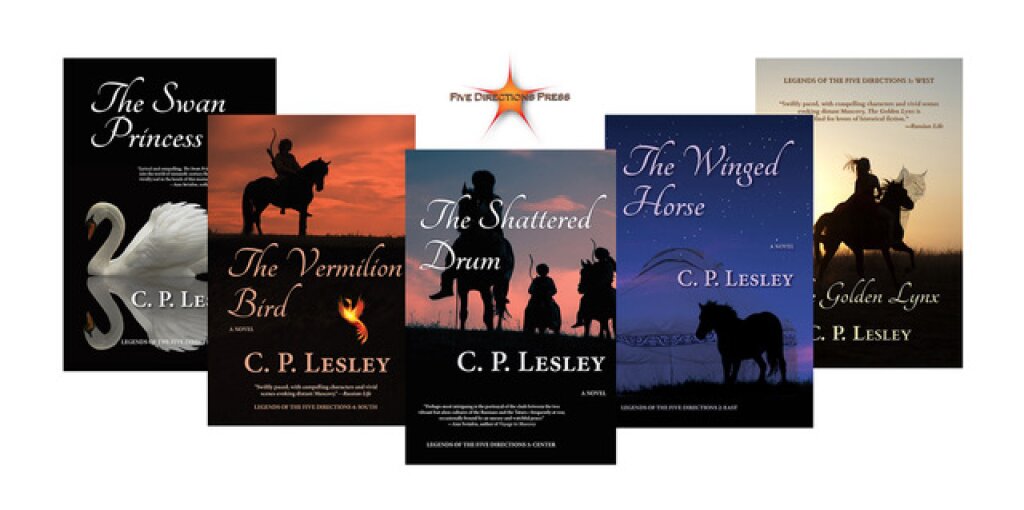Editor's Note: This week, All the Russias will be running a series of excerpts from Susanne Grace Fusso's new translation of Sergey Gandlevsky's novel Illegible. The volume will be out from the NIU Press imprint of Cornell University Press on 15 November and will include the below introduction by Fusso. Part I of that introduction may be found here.
Susanne Grace Fusso is the Marcus L. Taft Professor of Modern Languages and a Professor of Russian, East European, and Eurasian Studies at Wesleyan University, where she specializes in in nineteenth-century Russian prose, especially Gogol and Dostoevsky.
Sergey Gandlevsky has written that his very first childhood poem, written on the occasion of the transfer to another school of the “beautiful, stern” little girl he had a crush on, seems in retrospect to be an outline of the plot of Illegible: “An ominous rival, a duel, the sudden death of the beloved after the passing of decades." The motif of the duel, which appears in both Trepanation of the Skull and Illegible, signals Gandlevsky’s emotional engagement with the culture of Russia’s Golden Age—both Pushkin and Lermontov depicted duels in their work and died in duels themselves.
It is fitting that the plot of the novel was conceived in Gandlevsky’s childhood, because children’s literature is constantly referenced in Illegible, forming one of the points of contact between Krivorotov and his idol/rival Chigrashov. Beloved writers of Soviet-era children’s literature both Russian and Western, such as Korney Chukovsky, Sergey Mikhalkov, Jack London, Alexandre Dumas, and Rudyard Kipling, are deployed by Krivorotov and Chigrashov as models for both literature and life. Gandlevsky has described childishness as “the perpetual quality of the poet, which in everyday life can be manifested as irresponsibility, immature stunts, susceptibility to changes in mood.” The adult is supposed to bear his injuries with stoicism and care about the feelings of others, “but the poet’s very craft pushes him to make a fuss about every boo-boo, which life is so generous in handing out, or to occasionally get absorbed by his own beloved self (sometimes disgustingly so).” Elsewhere Gandlevsky has linked the persistence of childish behavior to the situation of the unofficial poet, who has not had to “enter into relationship with society” and become a full-fledged adult. Although in many ways Krivorotov and Chigrashov are opposites, they are linked by their self-absorption and refusal to put away childish things such as The Three Musketeers.
Illegible is not as difficult or experimental a text as Trepanation of the Skull. As one Russian critic says, “It’s a novel with all the necessary twists and turns. With characters, with a strong plot, a truly engaging plot." The complexity of Illegible partly resides in its matrix of references to the poetry of Pushkin, Khodasevich, Gandlevsky’s contemporaries, and Gandlevsky himself. Many of these references appear in the form of direct quotation (the sources are explained in my footnotes to Illegible). But others are more diffusely embodied in the narration itself. One of the novel’s most breathtaking passages appears near the midpoint, at the beginning of chapter 3, when Lev Krivorotov reads Chigrashov’s poetry for the first time in a blurry samizdat carbon copy that was passed on to him by his well-connected lover, Arina (who, it is hinted, was also Chigrashov’s lover in the past). Critics have praised Gandlevsky for avoiding the trap of presenting Chigrashov’s poetry directly and thus running the risk of narrowing the possibilities of what this poetry of reputed genius might be like. Instead he gives us Lev’s reaction to the poems, in an eloquent, ardent passage that is full of such apt metaphors as the following: “Krivorotov rhymed as if he were climbing a flight of stairs, guided by the bend of its railing. But Chigrashov used rhyme for balance, the way a tightrope walker uses his pole, and he slid by unsteadily, high up above, grinning with fear and daring” (98). As one critic writes, Gandlevsky is describing not particular poems but the feelings aroused by the poems, and every reader can fill in the gaps with the poems that have had a similar effect on them.
Instead of concocting specific poems by Chigrashov, Gandlevsky draws on his own vast knowledge of poetry to create synopses of poems that Chigrashov might have written. The paraphrases of Chigrashov’s poems include references to multiple contemporary poems. Chigrashov’s poem in which “the functions of the Creator in the poem were entrusted to the beloved woman” (90) evokes Joseph Brodsky’s “I was only that which you touched with your palm” (“Ia byl tol’ko tem, chego”). The poet and literary critic Lev Loseff interprets Chigrashov as a portrait of Brodsky, but he is clearly a composite figure. As Gandlevsky has noted in personal communications with the translator, “Brodsky has occupied such a large space in Russian culture that things are attributed to him that shouldn’t be—and that is quite understandable.”
Chigrashov’s poem in which “the lamentations of a rejected lover were interwoven . . . with the telephone number of his beloved” and he consents “to a second Biblical operation on his rib cage” (98) evokes both Alexei Tsvetkov’s poem 448-22-82 and Arseny Tarkovsky’s Star Catalogue (Zvezdnyi katalog). And Chigrashov’s poem about a man loafing on the bank of a river before shooting himself, “bang-bang,” in the forehead (98) is an irreverent précis of a beautifully enigmatic poem by Gandlevsky himself, “A slave, son of a slave, I broke free of my fetters” (“Rab, syn raba, ia vyrvalsia iz uz”).
Yet another example of Gandlevsky’s distinctive use of poetic subtext is his treatment of Pushkin’s 1823 poem “Will you forgive my jealous daydreams” (“Prostish’ li mne revnivye mechty”) — included below in an Appendix. Gandlevsky notes, “It seemed to me that Pushkin had exhaustively enumerated all the situations when jealousy arises, and I tried to economize my strength and copy from the classic." In a description of Lev’s jealous torments over Anya, Gandlevsky transposes Pushkin’s lyrically terse and elevated language into prosaically detailed situations redolent of 1970s Moscow (101-04; see Pushkin poem in Appendix below). A comparative reading of Pushkin’s poem with Gandlevsky’s novelistic episode is most rewarding for what it says about Gandlevsky’s writerly personality. He is so in touch with the human emotion expressed in Pushkin’s poem that he has no trouble recasting it for a reality of a hundred and fifty years later, translating it seamlessly from the tsarist empire to the Soviet one. A similar transformation is wrought on Pushkin’s “little tragedy” Mozart and Salieri, the supreme reflection on artistic jealousy, in the entire text of Gandlevsky’s novel.
The title Illegible is, in the original, an abbreviation, "NRZB," used in manuscripts to indicate illegible or indecipherable passages; in recent Russian literature, it has been used by Alexander Zholkovsky as the title for his 1991 volume of stories. "NRZB" appears in the text of Gandlevsky's novel only twice, both times in the only specimen of poetry by Chigrashov that we are given, an unfinished poem that Krivorotov finds in a notebook entrusted to him by Chigrashov’s half-sister (153). Krivorotov, Chigrashov, and Gandlevsky himself, like many contemporary Russian poets, write in meter and rhyme, and in the Russian text the abbreviation NRZB (pronounced enn-air-zay-BAY) fits perfectly into the poem’s anapestic meter and even rhymes with a previous line. (Although I have rendered the humorous doggerel that occasionally appears in the novel in meter and rhyme, for the serious poetry of Krivorotov and the unfinished poem by Chigrashov I have chosen to preserve the literal sense rather than the formal features of the poems.) Since Krivorotov is engaged in the virtually impossible task of “reading” another human soul, the appearance of the abbreviation for “illegible” as a part of Chigrashov’s creative legacy is painfully appropriate.
Gandlevsky’s poetic colleague Alexei Tsvetkov has said of him, “With the exception perhaps of Pushkin, I do not know another example of a poet merging with his time to such an extent that that time could be—and probably will have to be, at least in part—reconstructed based on his poems.” In Illegible, as in his poems, Gandlevsky gives us unparalleled access to the atmosphere and ethos of his era, while at the same time demonstrating the universality of human emotion, whether in a drawing room in 1823 or a dilapidated Soviet half-basement in 1971.
-----------------------------
Appendix: Pushkin's “Will you forgive my jealous daydreams” (1823)
Will you forgive my jealous daydreams,
The mad anxiety of my love?
You are true to me: why then do you love
To constantly frighten my imagination?
Surrounded by a crowd of admirers,
Why do you wish to appear sweet to all of them,
And give them all the gift of empty hope
With your marvelous gaze, now tender, now dejected?
Having taken possession of me, having clouded my reason,
Confident in my unfortunate love,
You don’t notice when, amid their passionate crowd,
Alien to conversation, alone and silent,
I am tormented by solitary vexation;
Not a word to me, not a glance . . . cruel friend!
Should I wish to run away: with fear and entreaty
Your eyes do not follow me.
If another beautiful woman starts up
A suggestive conversation with me—
You are calm; your cheerful reproach
Is deadly to me, because it expresses no love.
And tell me: why does my eternal rival,
When he catches me alone with you,
Greet you slyly? . . .
What is he to you? Tell me, what right
Does he have to turn pale and be jealous? . . .
At the unseemly hour between evening and light,
Without your mother, alone, half-dressed,
Why must you receive him? . . .
But I am loved . . . Alone with me
You are so tender! Your kisses
Are so fiery! Your words of love
Are so sincerely full of your soul!
My torments are ridiculous to you;
But I am loved, I understand you.
My dear friend, I pray you, do not torture me:
You do not know how powerfully I love,
You do not know how painfully I suffer.
Copyright 2019 by Susanne Fusso. All rights reserved.


